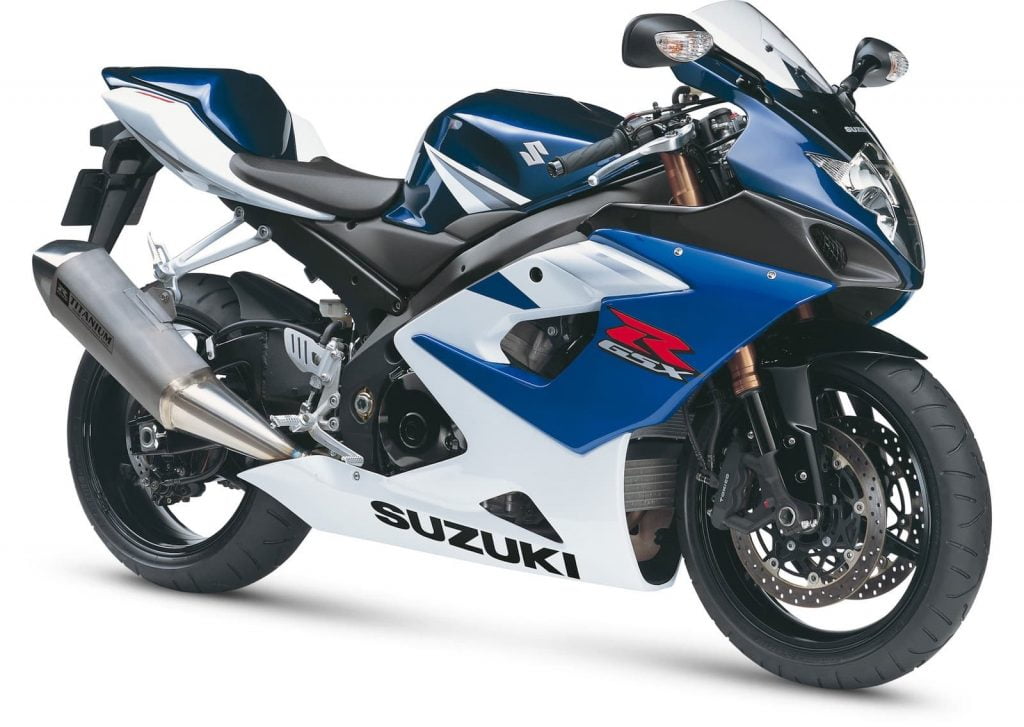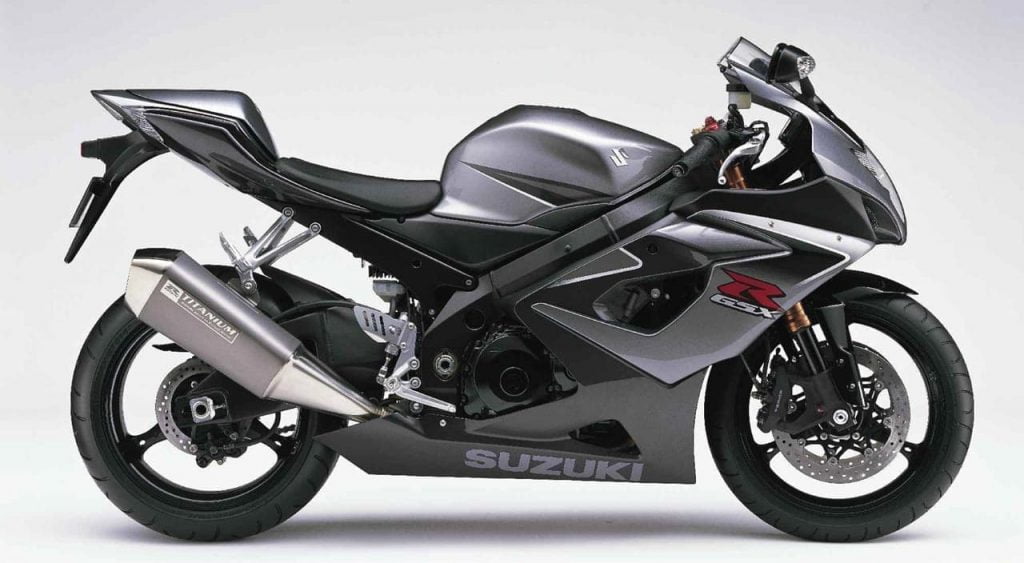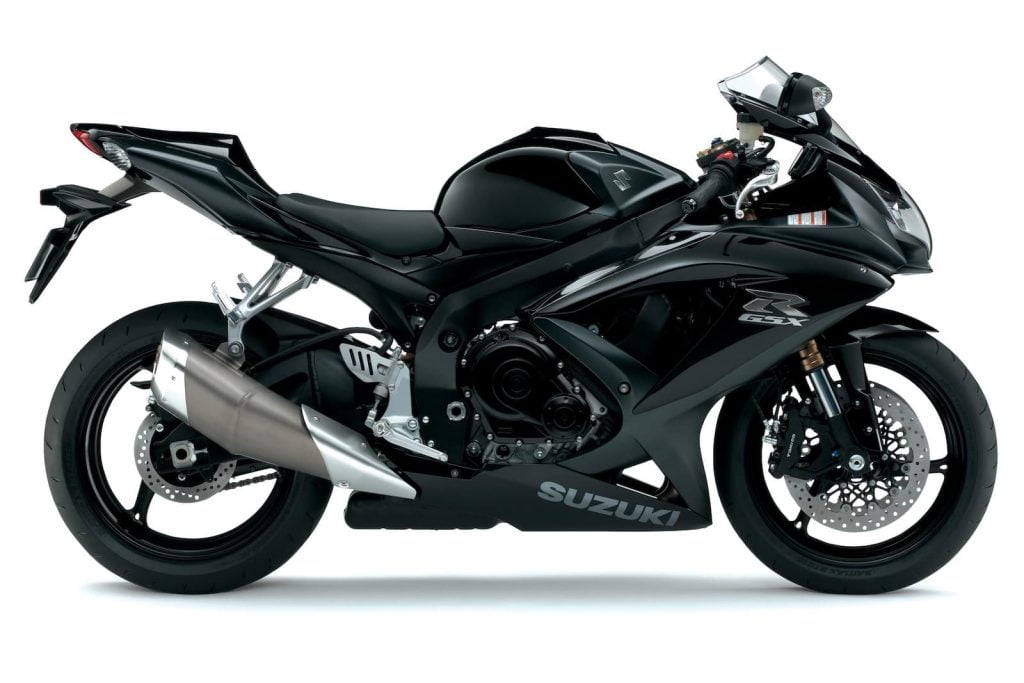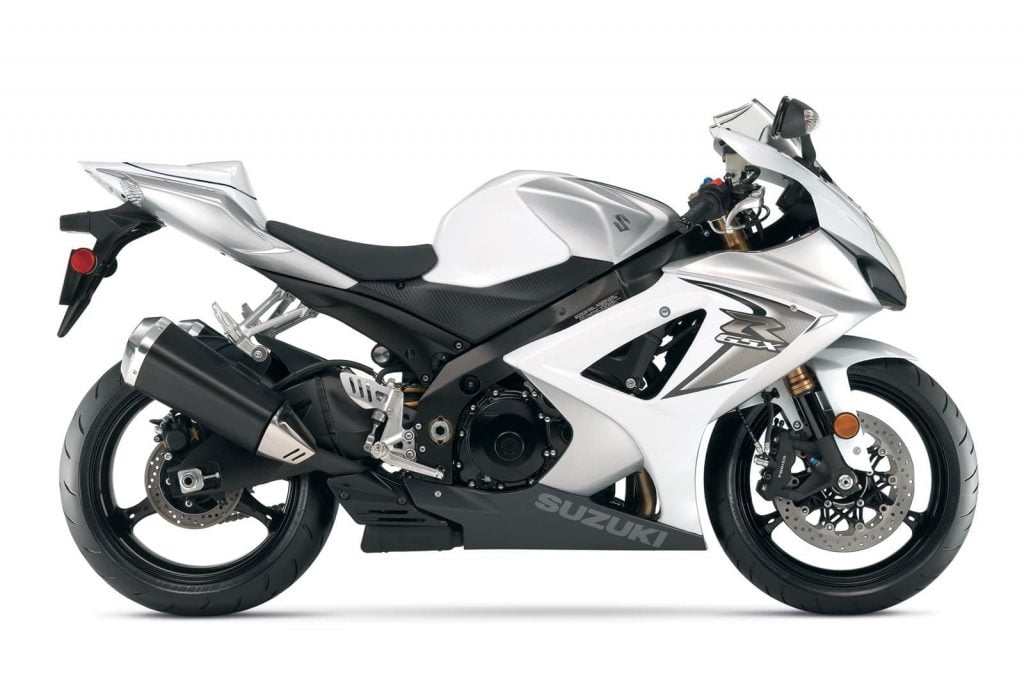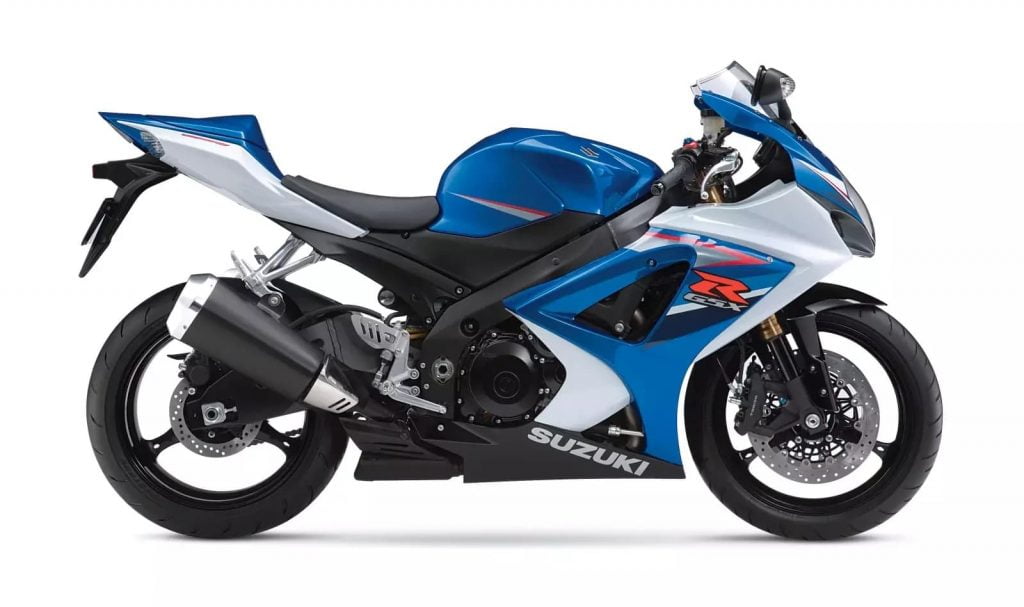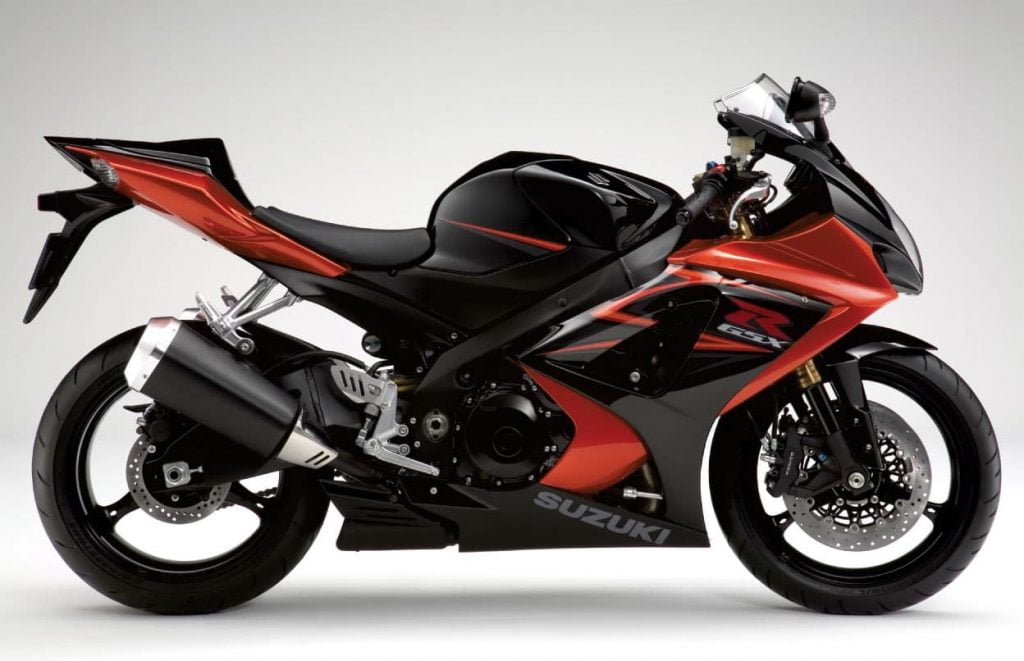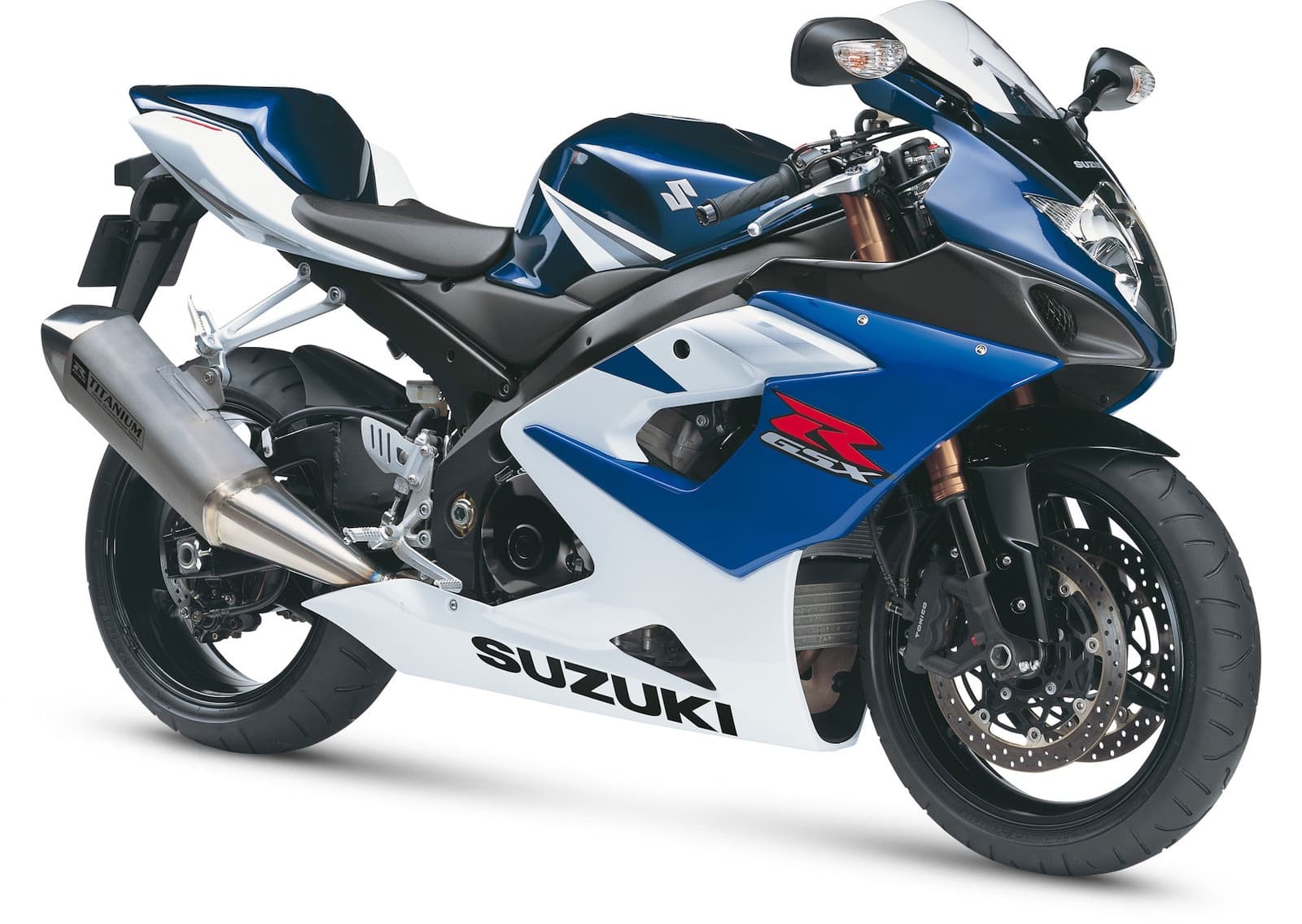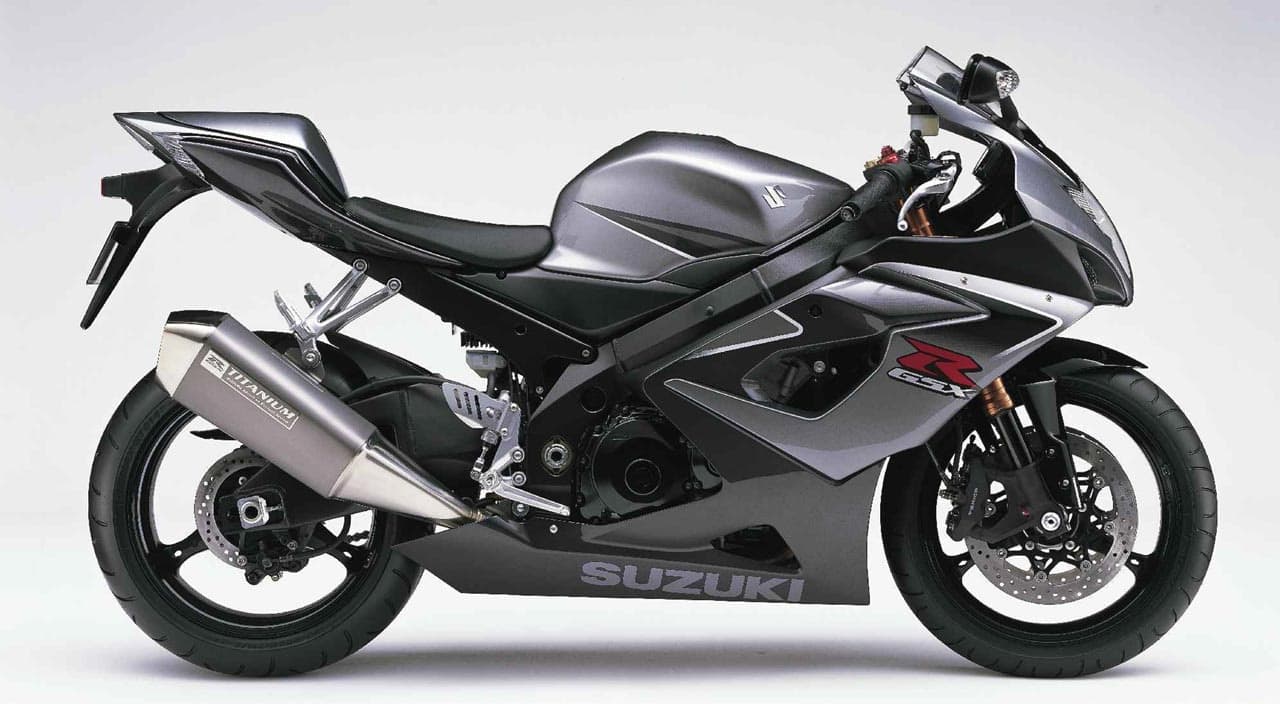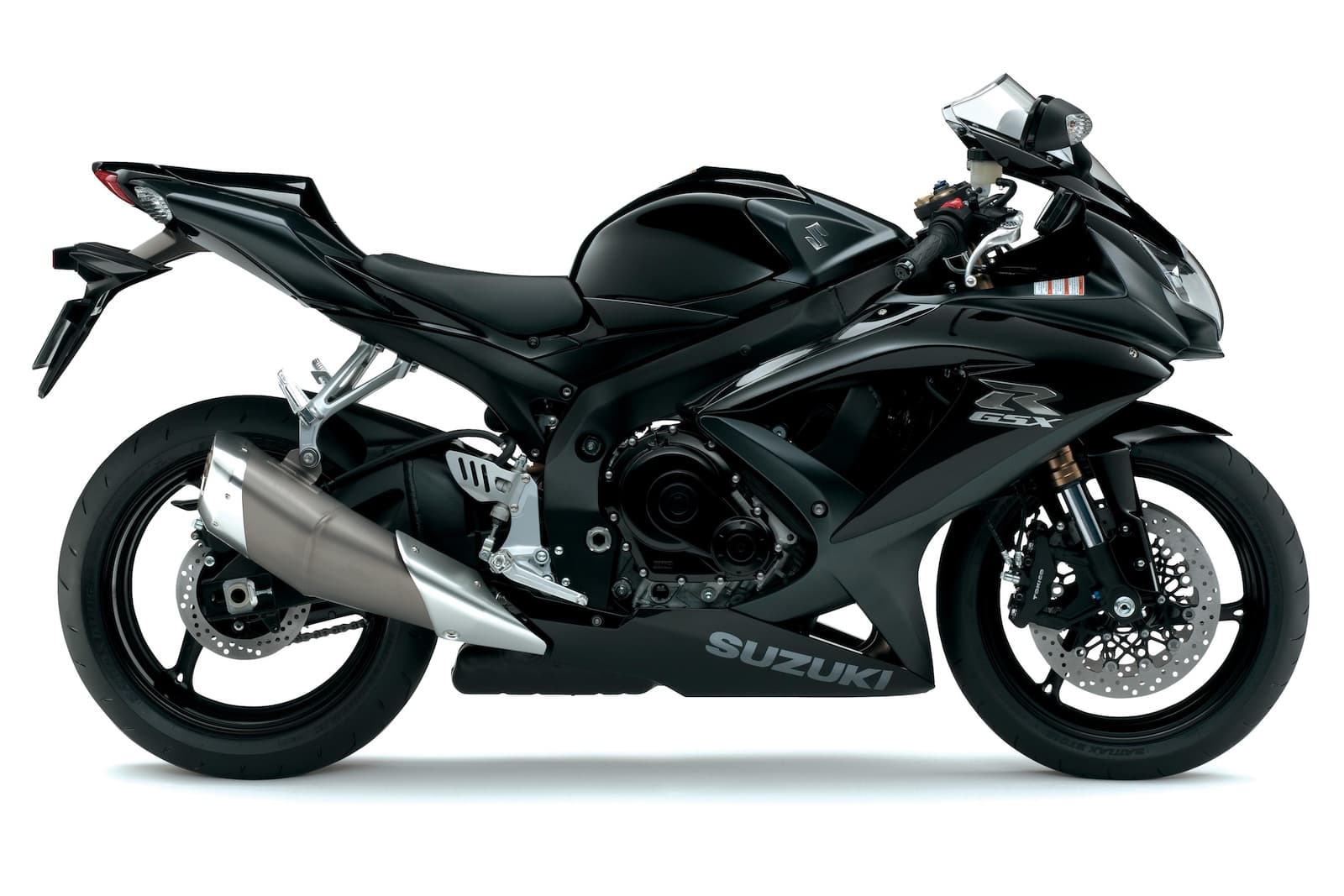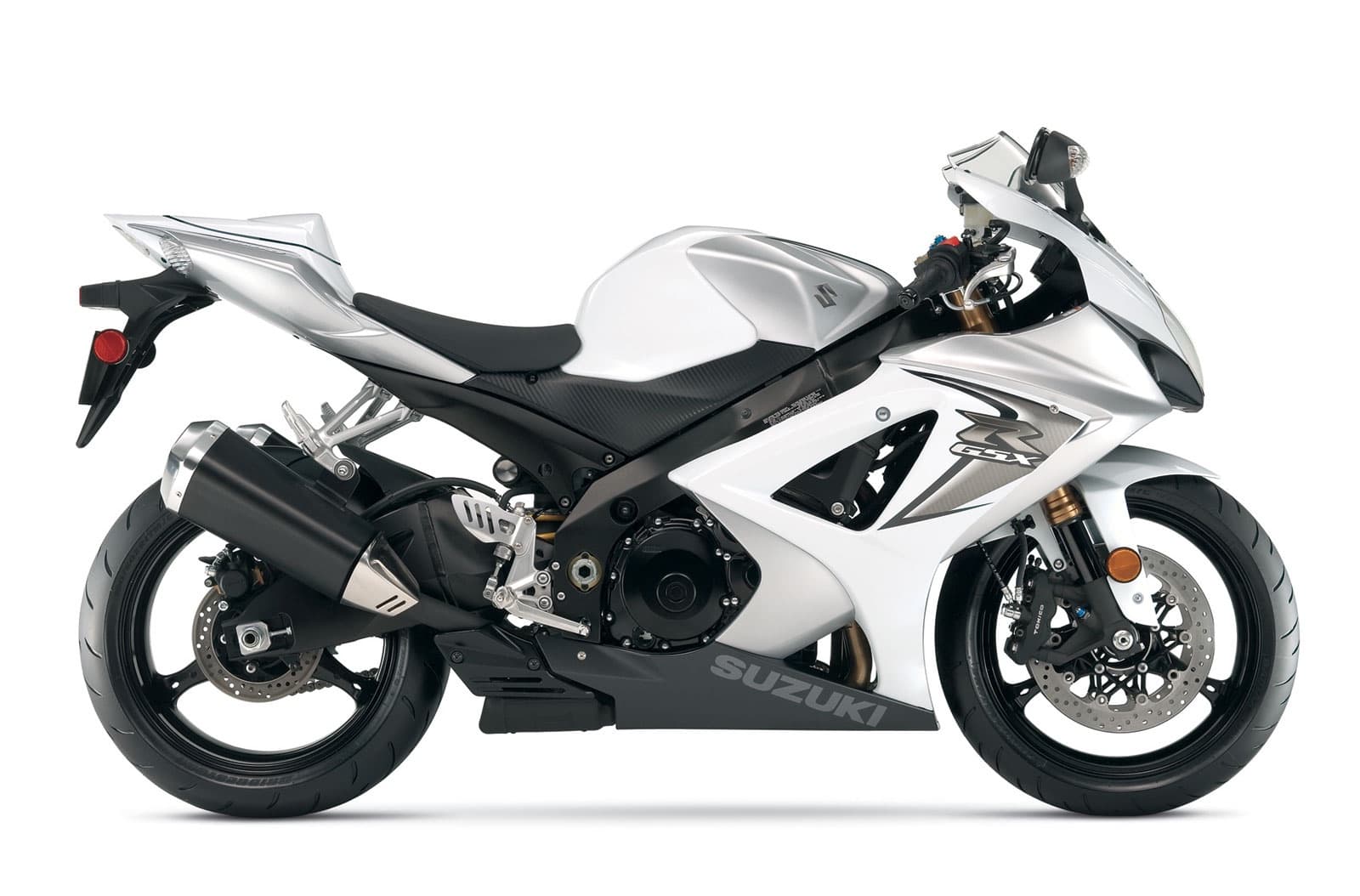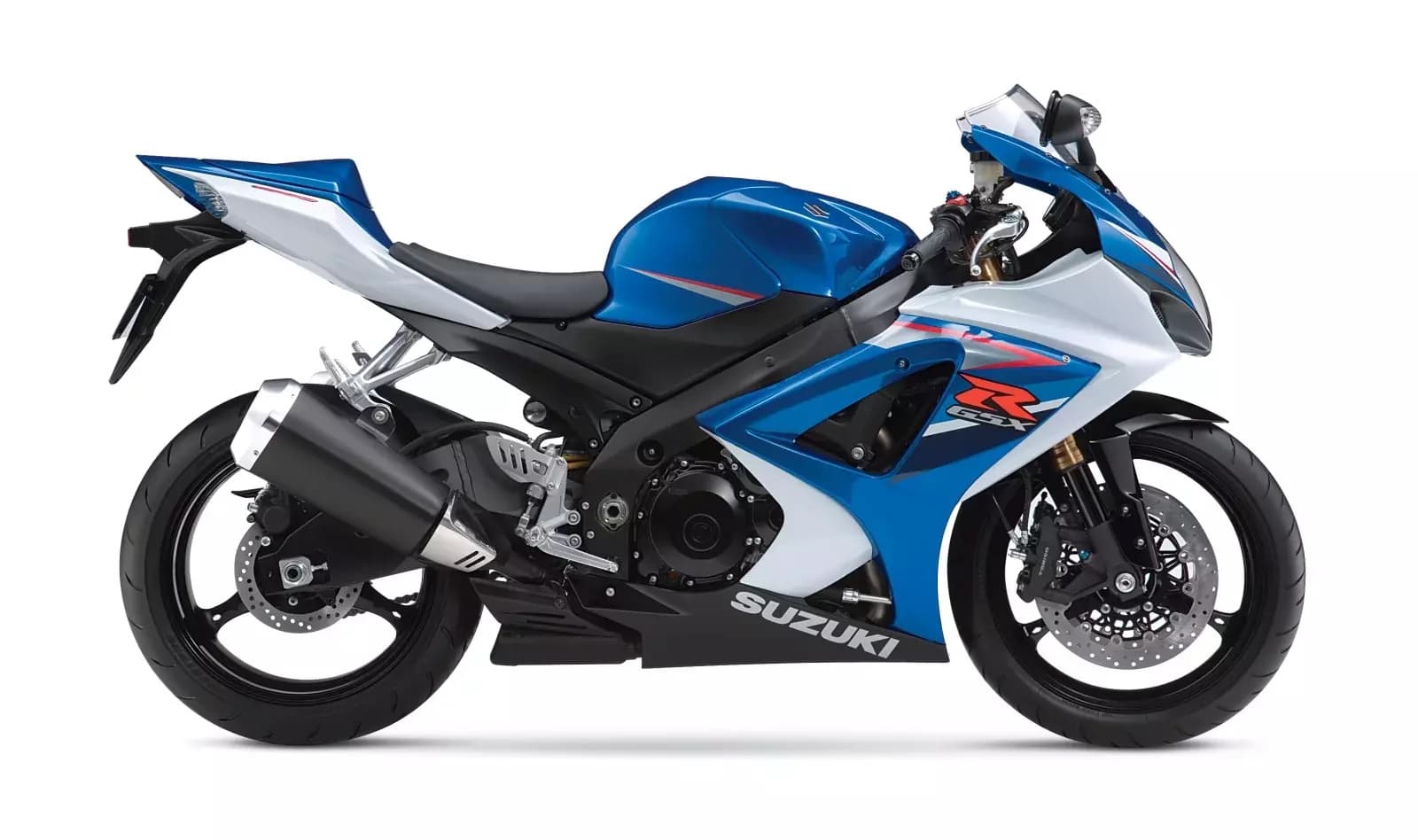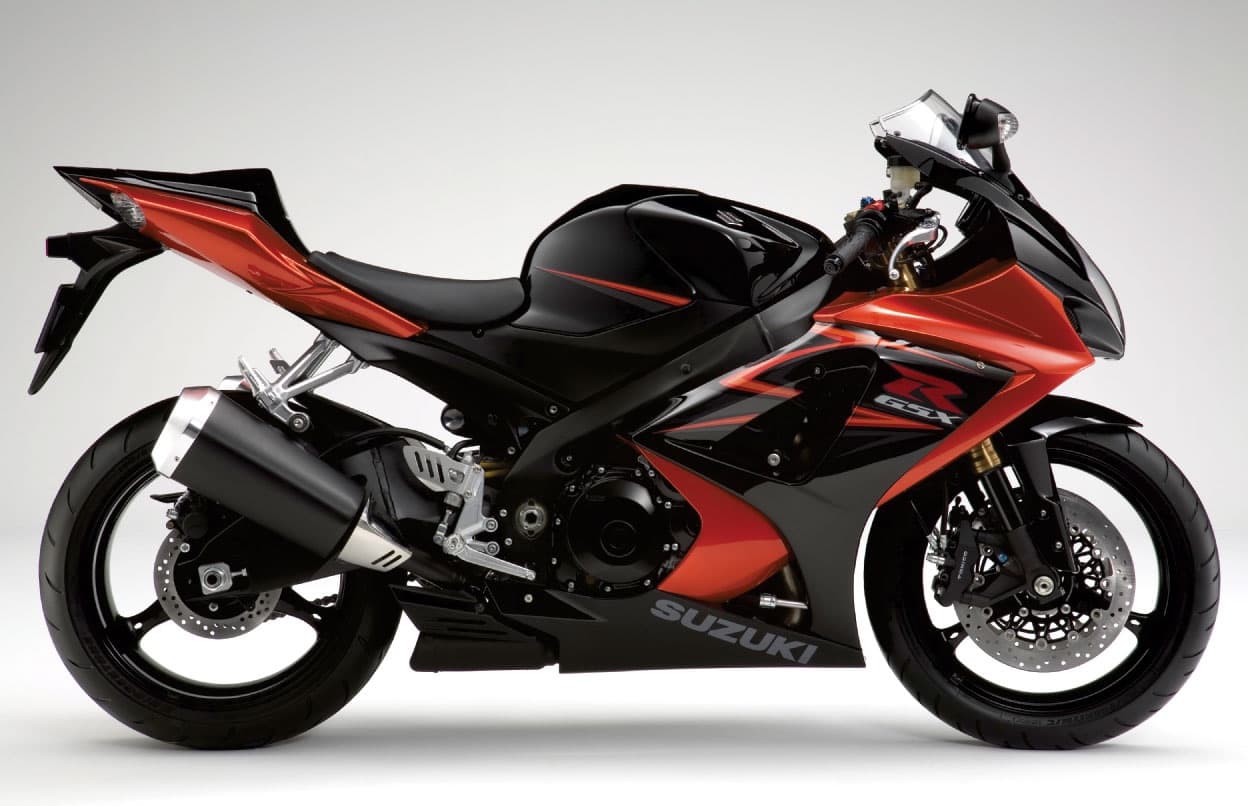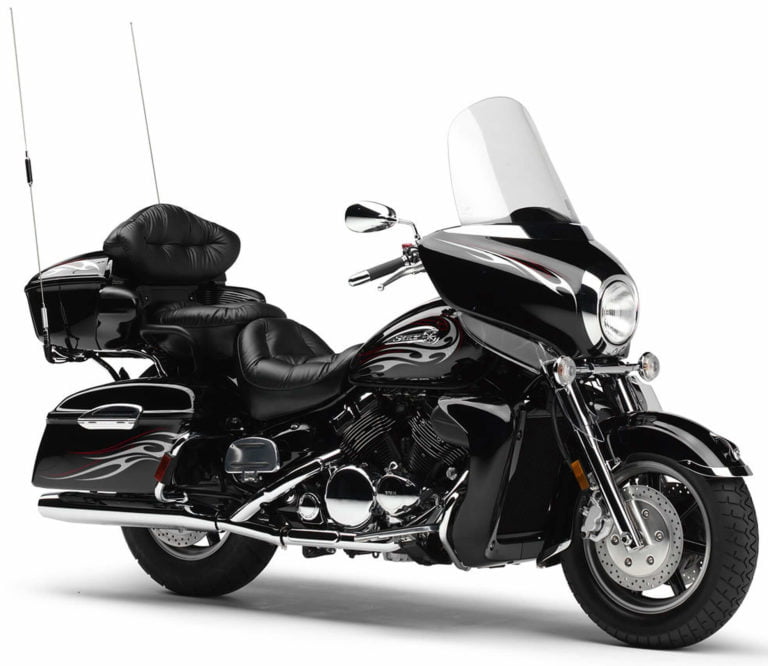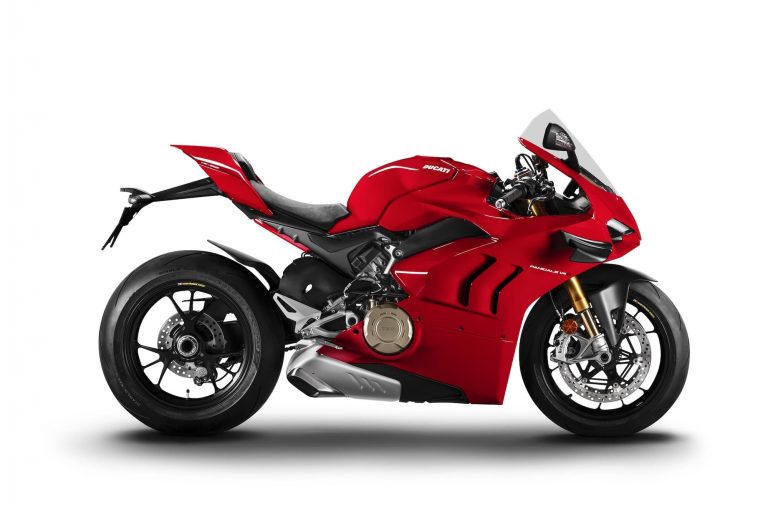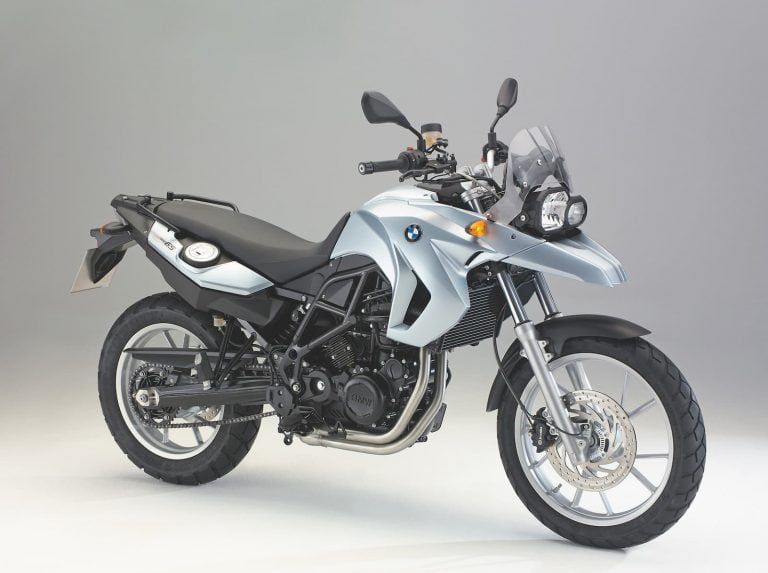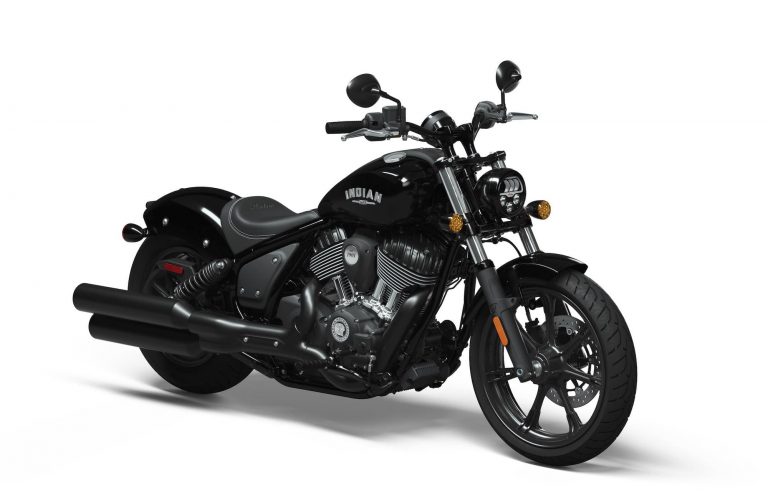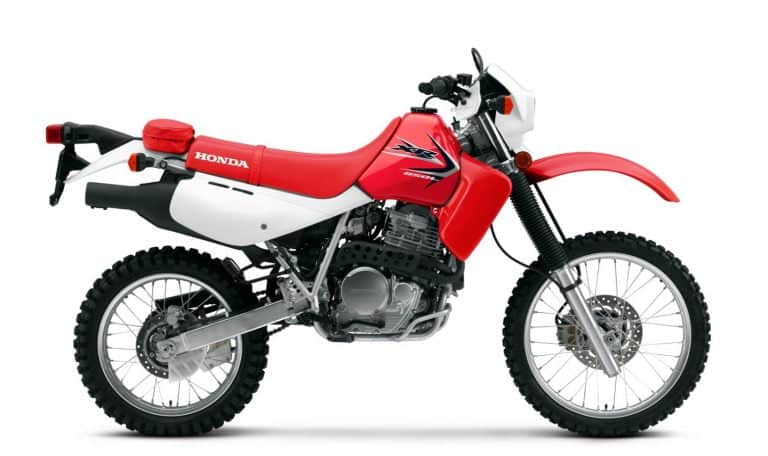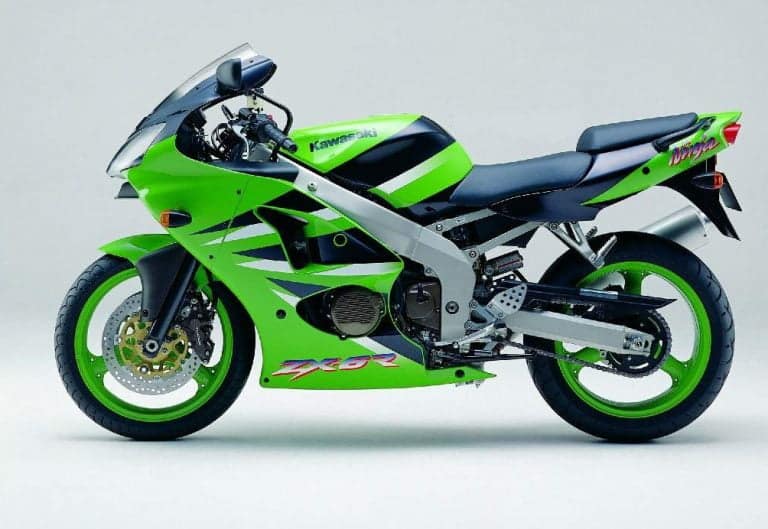Suzuki GSX-R1000 K5-K8 (2005-2008) Maintenance Schedule and Service Intervals
This is the maintenance schedule and associated service intervals for the Suzuki GSX-R1000 K5, the engine of which was carried over to K8 in 2008. In 2009, Suzuki released their 2009 GSX-R1000 K9, which kept the same basic engine until 2016.
Here are the maintenance schedules for the various generations of Suzuki GSX-R1000:
- 2001-2004 Suzuki GSX-R1000 — 988 cc engine, single round exhaust. K3-4 has a 32-bit ECU and 4 piston radial-mounted calipers, under 120 kW (161 hp) @ 10800 rpm
- 2005-2008 Suzuki GSX-R1000 — 999 cc engine from wider bore.Titanium valves, lightweight pistons, slipper clutch. Trapezoidal exhaust. 2007-2008 has heavier dual exhausts. More power (131 kW @ 11000 rpm). Slight power bump in 2007 to 134 kW (182 hp) @ 12000 rpm.
- 2009-2011 Suzuki GSX-R1000 — New more over-square engine, redesigned fork, still dual exhausts. Same power as 2007.
- 2012-2016 Suzuki GSX-R1000 — Lighter pistons, revised cams. Ride modes. ABS from 2014. Brembo calipers. Similar power. Single exhaust.
- 2017+ Suzuki GSX-R1000 and GSX-R1000R — RBW, IMU, more power (148.6 kW / 199.2 hp @ 13200 rpm)
The Suzuki GSX-R1000 is a sport bike from Suzuki’s GSX-R series of motorcycles. It was introduced in 2001 to replace the GSX-R1100 and is powered by a liquid-cooled 988 cc inline four-cylinder, fuel-injected engine.
The K5 Suzuki GSX-R1000, the so-called “fifth-gen” GSX-R1000, was a major revamp of the already revolutionary K1-K4 GSX-R1000. But the K5 engine is iconic. The new engine produced 131 kW (176 hp) at 11000 rpm and peak torque of 118 Nm at 8500 rpm.
Later in life, emissions standards meant that the GSX-R1000 peaked in torque at higher and higher RPM — e.g. the 2017 GSX-R1000 hits max torque of 117 Nm at 10,800 rpm. So the earlier K5 engine is one of the gruntiest, which is why you see the same block in motorcycles like the GSX-S1000 and the Katana of today.
Suzuki changed the motorcycle’s tuning and a couple of parts in 2007. Overall the motorcycle was heavier due to a more restrictive exhaust and needed to be revved higher to reach its peak torque (and higher peak power). But fundamentally the engine is the same.
This site has links for things like oil and spark plugs from which we earn a commission (which unfortunately nobody can save, not even us). If you appreciate this work, then please use those links. Thanks!
K5-K8 Suzuki GSX-R1000 Service Intervals
The Suzuki GSX-R1000 has, overall, 3750 mile / 6000 km service intervals between oil changes. At every inspection, look over the inspection checklist below to see what else needs attending to.
Change the spark plugs every two services, every 7500 miles / 12000 km.
The major valve clearance service interval is every 14500 miles / 24000 km, as on many liquid-cooled Suzuki motorcycles.
You also need to regularly attend to the chain (cleaning it, lubricating it, and adjusting tension), as well as replacing critical fluids including the brake fluid and coolant.
What you need to service the K5-K8 Suzuki GSX-R1000
So you’re maintaining your original classic Suzuki K5 Gixxer eh? Awesome!
Here are the parts you’ll need — these are the specific part codes for the Suzuki GSX-R1000 K5-K8 models.
| Part | Suzuki GSX-R1000 K5-K8 spec |
|---|---|
| Oil | Suzuki requires engine oil with JASO MA spec, or at least API SF/SG or SH/SJ spec. Many oils fit this. Suzuki recommends SAE 10W-40 weight “Suzuki motor oil”, but I wouldn’t over-think this and use another popular high-grade oil like Motul 300V or Motul 7100. |
| Oil filter | Use a Hiflofiltro HF138RC, which is a drop-in high-quality replacement. This is used on all GSX-R1000 models (yes, even up to 2021). |
| Air filter | Use a K&N air filter as a drop-in replacement, part number SU-1005 for K5-K8 models, same as earlier years. |
| Spark plugs | The standard spark plug is NGK CR9E (works for most people most of the time). Some replace them with iridium CR9EIX plugs.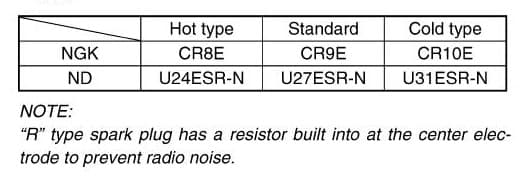 |
| Brake fluid | Suzuki (like most motorcycles) requires DOT 4 brake fluid (the K5-K8 had a cable-actuated clutch). |
| Brake pads | Most people upgrade their brake pads to EBC ones for better performance (and they’re very affordable). Use EBC part codes (for the 2005-2008 model years). * Front: FA379HH for the front * Rear 05-06: FA254HH * Rear 07-08: FA419HH 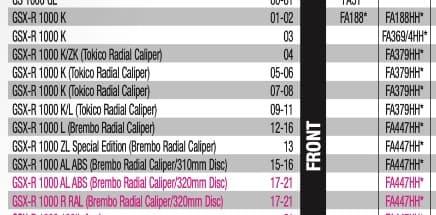 |
| Coolant | Suzuki only requires a coolant that’s “compatible with an aluminium radiator”, recommending Suzuki Super Long-life Coolant or an alternative for its later-model bikes. A high-quality alternative is Motorex M3.0 coolant. |
| Chain maintenance | Use either Motul chain paste or a complete Motul chain care kit for frequent chain servicing. |
| Grease | Always handy to have some lithium soap-based grease for external pivot points, like the kickstand. |
Suzuki GSX-R1000 K5-K8 (2005-2008) Maintenance Schedule
Below is the maintenance schedule for the Suzuki GSX-R1000 K5-K8.
Maintaining the original GSX-R1000 K5-K8 is much like maintaining any other sportbike. Service the chain and change the oil regularly, change the fluids (brake, clutch, cooling) every 4 years, and remember to re-torque and lubricate external pivot points with grease.
NOTE:
- I= Inspect and clean, adjust, replace or lubricate as necessary.
- R= Replace
- T= Tighten
- More frequent servicing may be required on motorcycles that are used under severe conditions (e.g. tracks)
- The break-in service is omitted (these are broken in!)
| mi x 1000 | 4 | 7.5 | 11 | 14.5 | |
|---|---|---|---|---|---|
| km x 1000 | 6 | 12 | 18 | 24 | |
| Months | 6 | 12 | 18 | 24 | Every |
| Engine oil (Motul 7100 10W-40) | R | R | R | R | |
| Engine oil filter (HF138RC) | – | – | R | – | |
| Air cleaner element | I | I | R | I | |
| Spark plugs (NGK CR9E) | I | R | I | R | |
| Valve clearances | – | – | – | I | |
| Exhaust valve | – | I | – | I | |
| Fuel line | I | I | I | I | |
| Idle speed | I | I | I | I | |
| Throttle valve synchronization | – | I | – | I | |
| Evaporative emission control system (if fitted) | – | I | – | I | |
| PAIR (air supply) system | 4 years: R | ||||
| Throttle cable play | – | I | – | I | |
| Clutch cable play | I | I | I | I | |
| Radiator hoses | I | I | I | I | 4 years: R |
| Engine coolant (Motorex M3.0 Coolant for a long-life alternative) | 2 years: R (4 years if long-life) | ||||
| Drive Chain (Motul chain paste) | I | I | I | I | 600 mi (1000 km): C/L |
| Brakes | I | I | I | I | |
| Brake hoses | I | I | I | I | 4 years: R |
| Brake fluid (DOT 4 only) | I | I | I | I | 2 years: R |
| Tires | I | I | I | I | |
| Steering | – | I | – | I | |
| Front forks | – | I | – | I | |
| Rear suspension | – | I | – | I | |
| Exhaust pipe bolts and muffler bolt and nut | – | T | – | T | |
| Chassis bolts and nuts | T | T | T | T |
Tyre size and tyre pressure for the Suzuki GSX-R1000 K5-K8
The manual for the Suzuki GSX-R1000 recommends the following tyre sizes and pressures. Of course, people choose their own tyres these days.
| Tyre | Size | Tyre pressure (cold) | Brand(s) shipped with |
|---|---|---|---|
| Front | 120/70 ZR17 M/C 58W | 250 kPa (2.50 kgf/cm2)/ 36 psi | BRIDGESTONE: BT014F F |
| Rear | 190/50 ZR 17 M/C 73 W | 290 kPa (2.90 kgf/cm2)/ 42 psi | BRIDGESTONE: BT014R |
It’s the same as for other years, though the tyres that the K5-K8 shipped with were a bit different.
About the Suzuki GSX-R1000 K5-K8 (2005-2008)
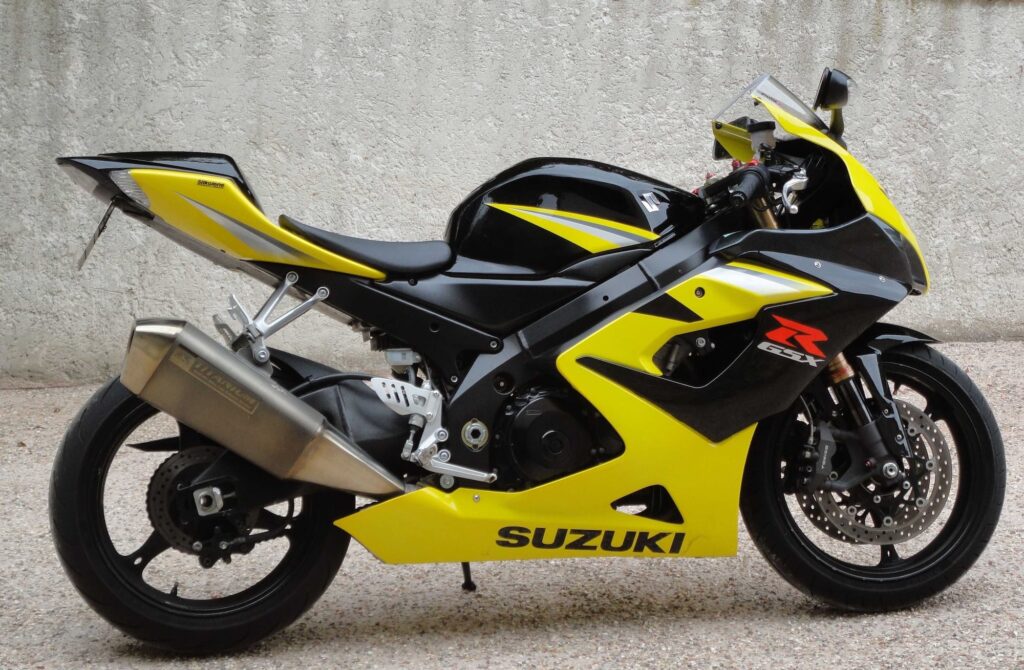
The original GSX-R1000 was a huge improvement on the outgoing GSX-R1100 and an improvement on the GSX-R750 of the time. Even though it had a lot more power, the original K1 GSX-R1000 was only 4 kg (9 lb) heavier than its smaller 750 brother.
The K5 GSX-R1000 was a major overhaul of the GSX-R, starting with the motor. And what a motor! They enlarged the bore, increased the compression, and also upped the power.
Unfortunately, while Suzuki kept the engine the same, they had to tune the K7-K8 GSX-R1000’s engine differently to comply with emissions regulations. The result was a motorcycle that was more powerful, but peakier, lacking the broad torque curve — and lighter weight, by the way — of the earlier K5-K6.
In fact, it’s easiest to see on a table.
| Dimension | K1-K4 GSX-R1000 | K5-K6 GSX-R1000 | K7-K8 GSX-R1000 |
|---|---|---|---|
| Bore/Stroke | 73mm x 59mm | 74.3mm x 59mm | 74.3mm x 59mm |
| Compression | 12.0:1 | 12.5:1 | 12.5:1 |
| Displacement | 987.7cc | 998.6cc | 998.6cc |
| Peak power | 120 kW @ 10,800 rpm | 131 kW @ 11,000 rpm | 138 kW @ 12,000 rpm |
| Peak torque | 120 Nm @ 8,500 rpm | 118 Nm @ 8,500rpm | 117 Nm @ 10,000rpm |
The K5-K8 GSX-R1000’s engine also gained titanium valves (steel on the K1-K4) with heavier springs that let the engine rev 1000rpm higher. The engine also has larger intake and exhaust ports.
One of the most significant changes to the K5 engine is the addition of a back-torque limiting, or “slipper” clutch, and closer gear ratios. Second gear remains the same as the K1-K4 but first is taller and third through sixth much closer and more suited to the fast-revving engine than before. This lets you shift through the gears more aggressively after launching.
The slipper clutch lets you downshift without needing to manually slip the clutch, which makes for better corner entry.
Suzuki kept the same 32-bit computer from the 2003 model for the K5, though of course re-mapped the engine. Suzuki did however add another injector per cylinder, and also increased throttle body size to 44mm.
In 2007, Suzuki upgraded the K5-K6 GSX-R1000. The engine remained the same, but some retuning was necessary so that it would comply with emissions regulations. This meant it was 6.4kg (14 lb) heavier from the new exhaust system. Suzuki countered this by revising the aerodynamics and increasing the horsepower for the engine through tuning — though at some cost, as the torque and horsepower both took longer to develop.
Suzuki also added a mode selector on the 2007 model, allowing power modes A through C. A is unrestricted, B is reduced power until 50% throttle is applied, and C is reduced power throughout the rev range. People on forums call this a “chicken switch” and debate its usefulness… though it probably comes in handy in the rain.
Manual for the Suzuki GSX-R1000 K5-K8
The above maintenance schedule comes directly from the user’s manual for the Suzuki GSX-R1000 2005 (the K5).
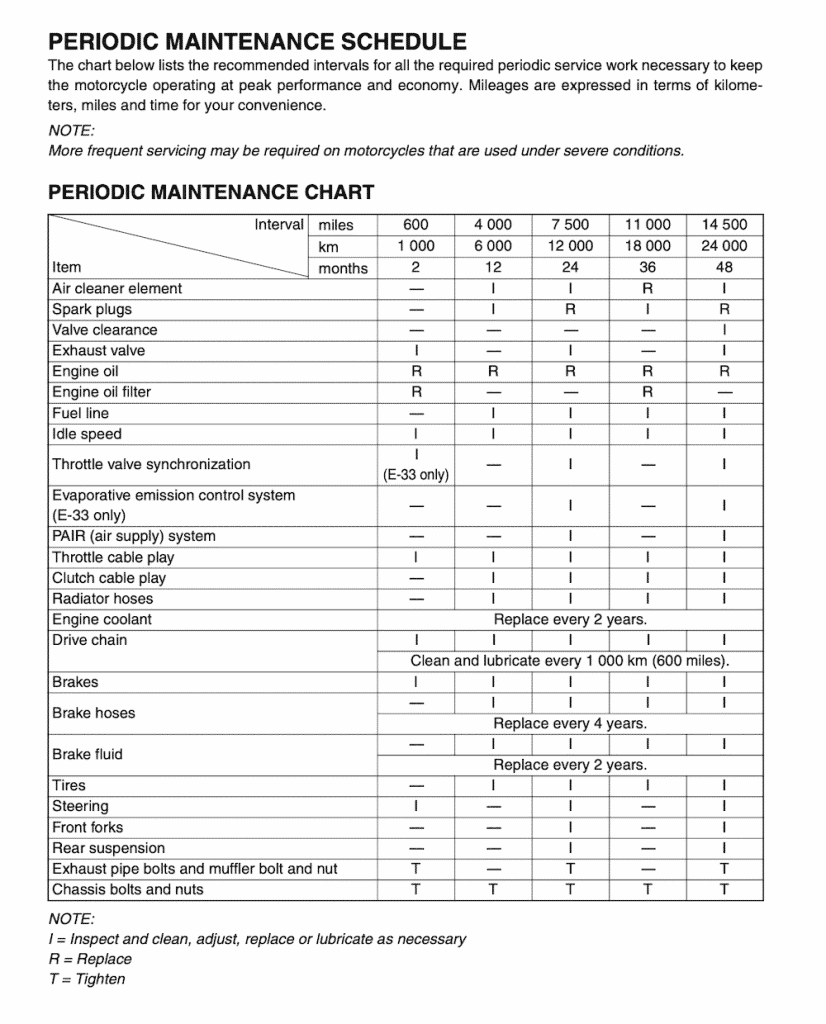
You can download Suzuki manuals from here.
